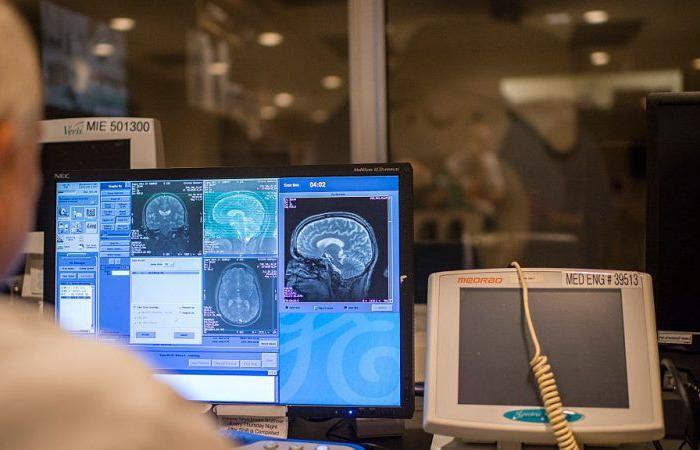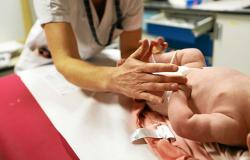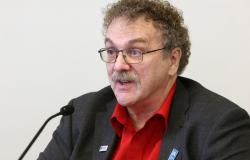It is important for policymakers to know that Alzheimer’s disease is a very individual disease and that one patient’s needs may be different from those of another person, a disease campaigner told Euractiv of Alzheimer’s who was also diagnosed with the disease.
Alzheimer’s disease — the most common form of dementia — affects around 7 million people in the European Union (EU). This dementia is a progressive pathology whose symptoms worsen over time. It is linked to the buildup of harmful proteins in and around brain cells. Although there is currently no cure, certain medications can slow the disease.
Jan Runar Eliassen, a member of Alzheimer Europe’s Dementia Working Group and a similar group in Norway, spoke to Euractiv about the Alzheimer’s diagnosis he received five years ago . Today he is 50 years old.
“It’s a big shock. “It’s not the kind of diagnosis you expect to receive at such a young age.”explains Jan Runar Eliassen. “We generally think that it is the grandmother or grandfather who can be affected, but I learned the hard way that it also affects young people”.
Cascading effects
Jan Runar Eliassen worked in IT and describes himself as a big football fan. His wife owns a grocery store and his sons run a disc golf business, both businesses he helps out with whenever he can. Despite his desire to remain active, illness continued to hinder his work.
One of the first consequences was the loss of his job.
“I had to get help from the government when I lost about 50% of my salary. When you’re married, have a mortgage and five children, it’s a big financial impact.”he confides. Another blow came when he realized that his health insurance did not provide compensation for problems related to Alzheimer’s disease.
Diagnosis helps family friends understand changes
In addition to memory problems, Alzheimer’s disease can cause patients to become angry more easily, lose interest in certain things, and distrust others, among other symptoms.
“It is important to take care of it quickly,” explain Jan Runar Eliassen. “This can help your family better understand that it’s not really you saying or doing these things, but that it’s the illness taking over.”
He explains that being diagnosed with Alzheimer’s disease comes with great uncertainty about what will happen in one’s life, how long it will last and the impact on the rest of one’s family.
Jan Ruan Eliassen is still happy to have been diagnosed early, and emphasizes that the experience of Alzheimer’s disease is different from one person to another.
However, he has had to adapt to no longer being allowed to drive and must now rely on others to watch a football match or go to the movies.
“I sometimes feel very isolated and I no longer have the freedom I had before”he confides. However, he considers himself lucky because he can count on the support of his family.
High variability in access to diagnostic services across the EU
“Accurate and timely diagnosis implies access to care, treatment [symptomatique] and the possibility of participating in trials »Professor Wiesje van der Flier, scientific director of the Amsterdam Alzheimer Center, explained to Euractiv.
Jan Runar Eliassen said that while Norwegians tend to be proud of their healthcare system, there is room for improvement when it comes to dementia care. The type of care a person receives also depends on where they live in Norway, a policy he is trying to change.
Likewise, Wiesje van der Flier said there is still much to be done in the field of Alzheimer’s disease diagnosis.
“Access to diagnostic services varies enormously across the EU and in many countries diagnosis is not made until very late”said Wiesje van der Flier. She added that it was also necessary to realize that diagnosis should not be limited to determining the severity of the disease, for example through cognitive tests, but should also focus on the disease itself.
« Widespread access to cerebrospinal fluid biomarkers or positron emission tomography (PET) scans is challenging, but developments in blood biomarkers may help in this regard “, said Wiesje van der Flier.
Learn strategies from other countries
During his talks with foreign activists, Jan Runar Eliassen learned that in some countries Alzheimer’s patients can visit different care homes and choose which one they would like to reside in if the need arises. made one feel. In addition, some countries provide patients with home help who visits them and participates in social activities with them.
Today, he sees his doctor once a year because he is still in the early stages of the disease, but these visits could happen every six months if his condition progresses.
Wiesje Van der Flier urged clinicians to take the concerns of patients and their families seriously and avoid the common fatalistic attitude: why make a diagnosis if nothing can be done anyway?
“Providing information and arranging appropriate care is absolutely appropriate. Sometimes symptomatic treatment can be helpful. In addition, the first disease-modifying treatments are available in non-European countries,”said Wiesje van der Flier.
The scientific director believes that this development is the sign of a new era, because it shows that Alzheimer’s disease will one day become a treatable disease.
“I think there are a lot of good things happening in this area right now and I’m very excited. I just hope I live long enough to enjoy it.”declared Jan Ruan Eliassen.







